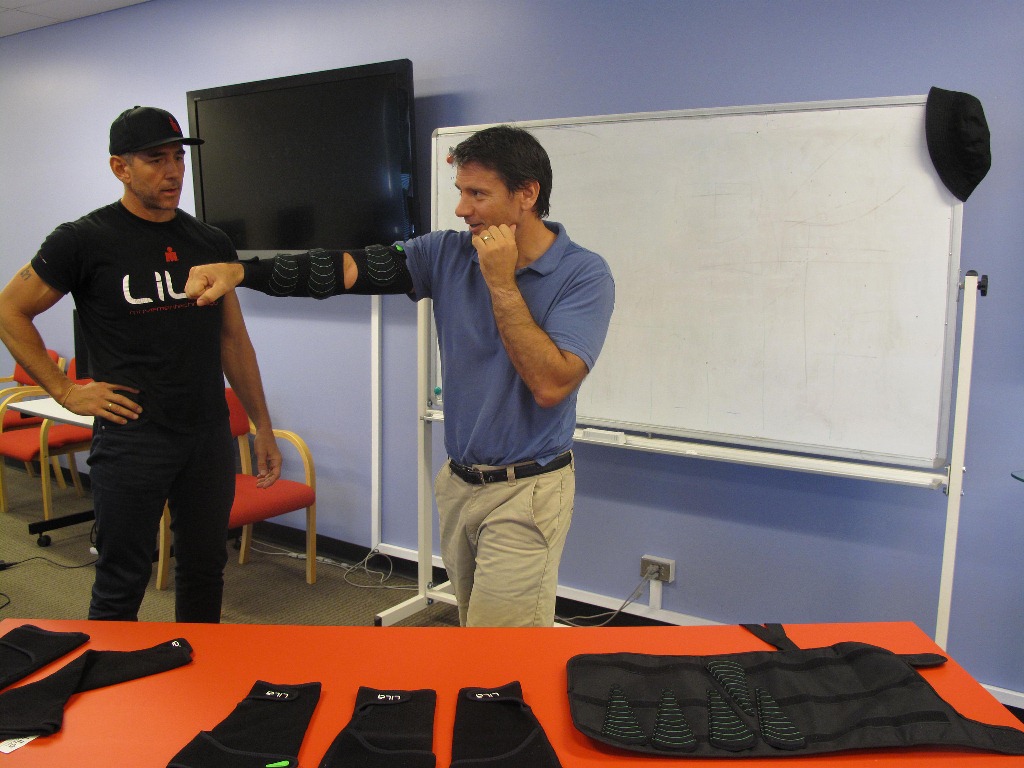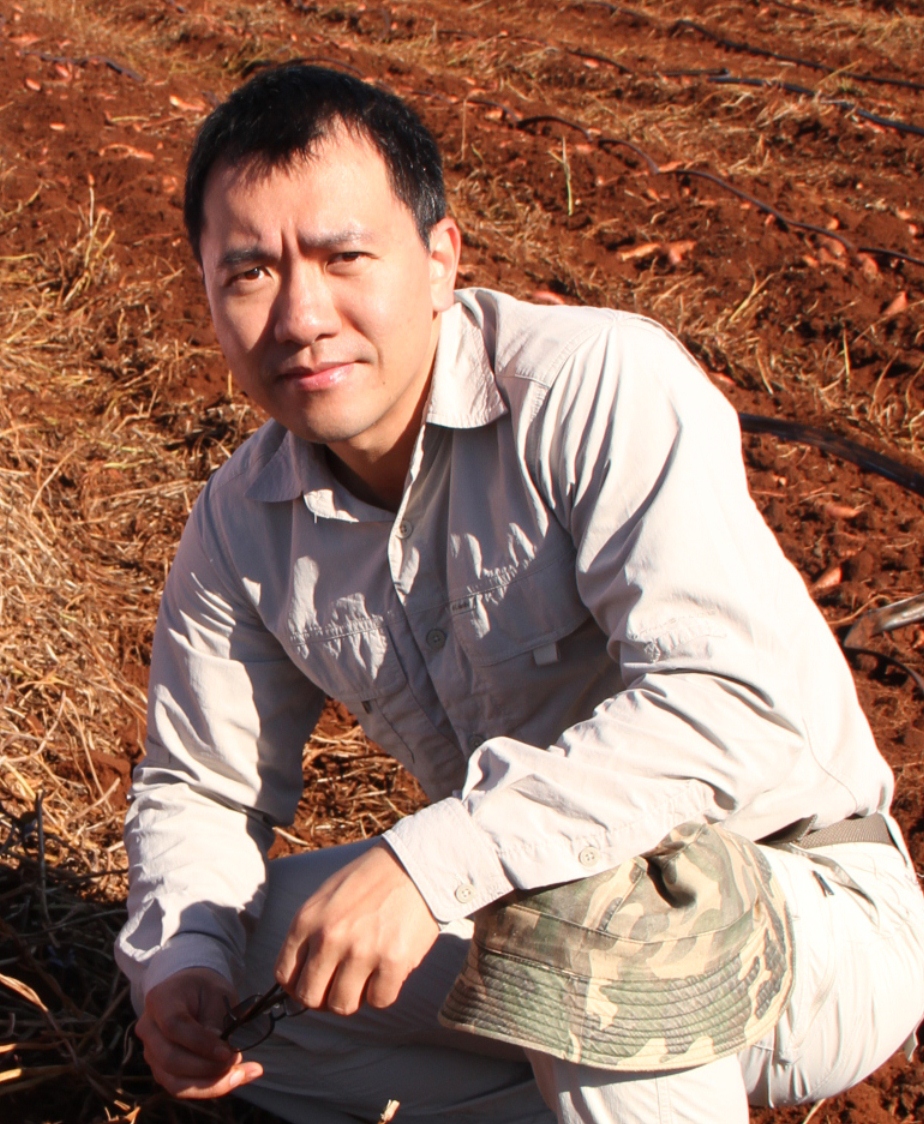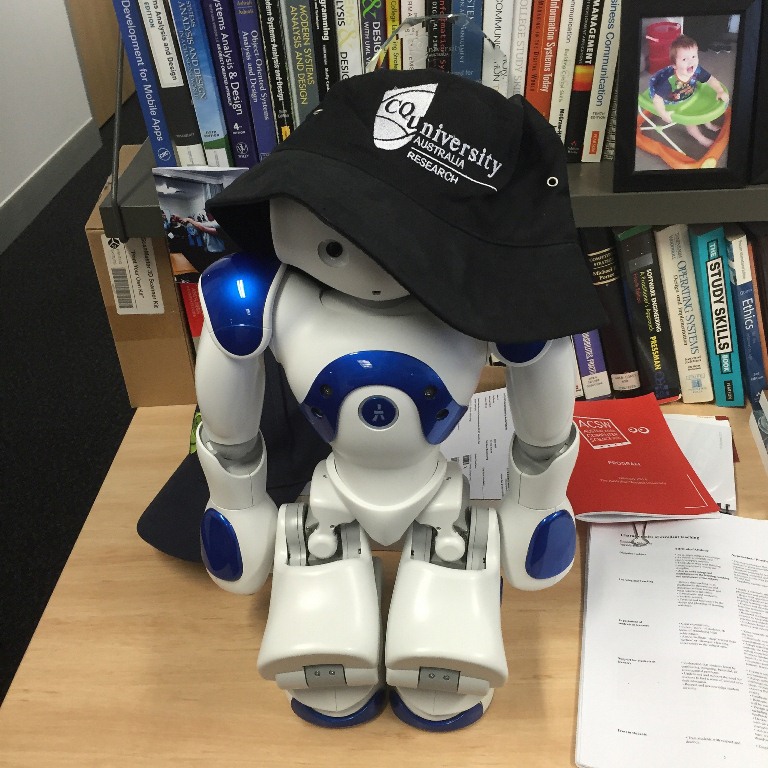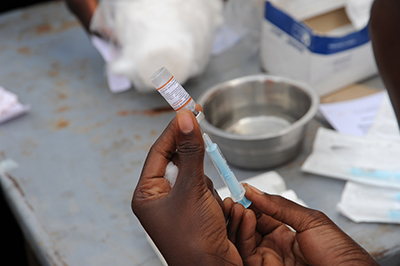
LUKE STRIKES OUT WITH MORE EXTENSIVE KICKBOXING RESEARCH
As kickboxing continues to grow in popularity, CQUniversity PhD candidate Luke Del Vecchio is determined to ensure performance enhancements are based on sound science.Luke is investigating the relationship between field tests of strength, power and kicking speed with kicking impact power in amateur kickboxers.He has also been exploring the potential of wearable resistance technology gear to produce performance gains in the sport.
"Previously, we have found upper body strength and power has a positive influence on punching impact power, but are yet to find what athletic attributes influence kicking impact power," Luke says. "The sport of kickboxing is growing in popularity worldwide, however determinates of striking performance remain unknown."
Luke recently worked with research subjects at the Rhino Mixed Martial Arts Training Centre in Yeppoon.
"Our research included reaction time testing on the blue lights and punching and kicking impact power measurements against a specialised impact force/power measurement device called StrikeMate."

GREENHOUSE CROP PRODUCTIVITY TO BENEFIT FROM $300,000 RESEARCH FELLOWSHIP
Greenhouse crop productivity will benefit due to a $300,000 Research Fellowship awarded this week to CQUni Senior Research Officer Dr Chengyuan (Stephen) Xu.
The Bundaberg-based researcher gained the Fellowship to develop a low-cost crop status alert tool, which will help growers improve their fruit and vegetable crop results in the face of threats of sub-optimal environmental conditions like high temperature.
Currently, most greenhouses in Australia do not have capacity for high level environmental control.
The crop status alert tool will integrate a mobile App for on-farm data collection, and a cloud-based analysis package with functions of automated data analysis and report/alert generation.
Initially, the research will focus on blueberry and capsicum crops grown in polytunnels. The mobile App will be used with economic remote sensing devices, allowing farm staff to collect data during their daily work without significantly increasing their workload.
"Live SMS alerts will be sent to growers to alert crop status and key environmental variables when the situation appears sub-optimal," Dr Xu says. “This will facilitate growers to make timely intervention.”
Dr Xu's boon was announced as part of the Queensland Government’s investment of Advance Queensland funding for agricultural innovation over the next three years to help farmers and graziers achieve better yields and compete globally.
A total of $10 million was awarded to 54 Queensland scientists to help drive innovation.
Dr Xu joined CQUni's Institute for Future Farming Systems last year in a position co-funded by CQU and the Queensland Department of Agriculture and Fisheries (DAF).

ROBOTIC TEACHING ASSISTANT PROJECT TEAM PREPARES FOR NEXT MILESTONE
In schools of the future, it's possible that kids used to calling out 'sir' or 'miss' might have to come up with a new way of attracting attention.
At least, that’s the future envisioned by Dr Michael Cowling at CQUniversity, who foresees that tomorrow's classroom will contain intelligent robotic teaching assistants that work together with the students during a class.
The Senior Lecturer in Educational Technology has recently secured internal funding to start developing a cloud infrastructure for the next round of commercially available educational robots, such as the Nao robot from French company Aldebaran, with a view of advancing the idea of a Robotic Teaching Assistant.
"We are leveraging off the Queensland Government push for robotics in the classroom, and the rise of commercial robots like Nao that make the developments easily accessible to non-research institutions," Dr Cowling says.
Nao is an autonomous, programmable humanoid robot developed by Aldebaran for educational use. It's already being used in some classrooms to teach students programming and robotics, but Dr Cowling sees a more general use for the robot in support of all classroom pedagogy.
"At this stage we’ve just got some demo code going and have done some exploratory work, but we are seeking further funding to spend some more time on it. We are delighted to be getting some good support from industry, including our industry partner ACME Robotics, who have provided us with the expertise of their team and also a Nao robot to do our testing on,” says Dr Cowling.
"Our next milestone will probably be in a couple of months when we have a polished demo we can start showing to investors, with our ultimate goal being the effective integration of robotics into all parts of the curriculum, not just programming classes."

THE WORLD WILL HAVE TO WAIT FOR A ZIKA VIRUS VACCINE
The long-term prospects for a vaccine against Zika virus are promising, but don’t expect it too soon.
That’s according to Immunology Professor Andrew Taylor-Robinson who heads up an Infectious Diseases Research Group at CQUniversity Australia.
“The rapid rise in the number of reported clinical cases of Zika in South and Central America over the span of a few months in late 2015 and early 2016 suggests a real risk of a global epidemic of this mosquito-transmitted viral infection,” Prpfessor Taylor-Robinson explains.
He says this threat is exacerbated by the globalisation of the human population and the complexity of additional modes of transmission of the virus.
“Currently, no anti-Zika vaccine is available and while this has now been prioritised by multiple funding agencies, it may take several years to come to commercial fruition.
“The fact that Zika is closely related to yellow fever and Japanese encephalitis viruses (both of which have effective vaccines), offers hope that the fast-tracked preparation of a candidate vaccine is feasible.”
However, because the virus poses the most risk to pregnant women, clinical trials will pose huge challenges.
“Performing clinical trials on pregnant women would provide ethical and practical challenges to overcome before licensure is granted for administration to the general public.”
Despite the fact that a candidate vaccine could be at the pre-clinical trial stage by the end of 2016, it could take years for the clinical trials to be approved and conducted.
“While attaining ethical approval for, and performing, tests of vaccine safety and efficacy in humans can be laboriously slow at the best of times, the due process for any prototype vaccine that is given to pregnant women is understandably subject to rigorous scrutiny.
“This is especially pertinent to Zika since the gravest manifestation of infection affects pregnancy.
While the world awaits a preventative vaccine, alternative public health strategies must be employed.
Professor Taylor-Robinson said vector control programs to target mosquito breeding are required in order to limit the global spread of this disease.

SPIKE IN SEVERE FOOD ALLERGIES PERPLEXES AUSSIE HEALTH RESEARCHERS
Hospital admissions data indicates a five-fold increase in the number of Aussie kids experiencing severe food allergies in the space of one decade.
“That spike is baffling,” says CQUniversity researcher Dr Karena Burke.
Dr Burke is using the springboard of national Food Allergy Week to embark on a national project exploring the impact that having a child diagnosed with a food hypersensitivity has on a family unit.
The project is relevant for parents or caregivers of children with a food allergy, food intolerance or coeliac disease.
“There’s a trend of more kids showing up with severe anaphylactic reactions but we don’t know why. The science has not yet caught up,” Dr Burke says.
“More than one million Australians live with food allergies and face changes to their lifestyle for their whole life.
“Chronic food hypersensitivity causes significant psychological trauma and distress in Australian children and families who face a daily battle against the enemy of food.”







